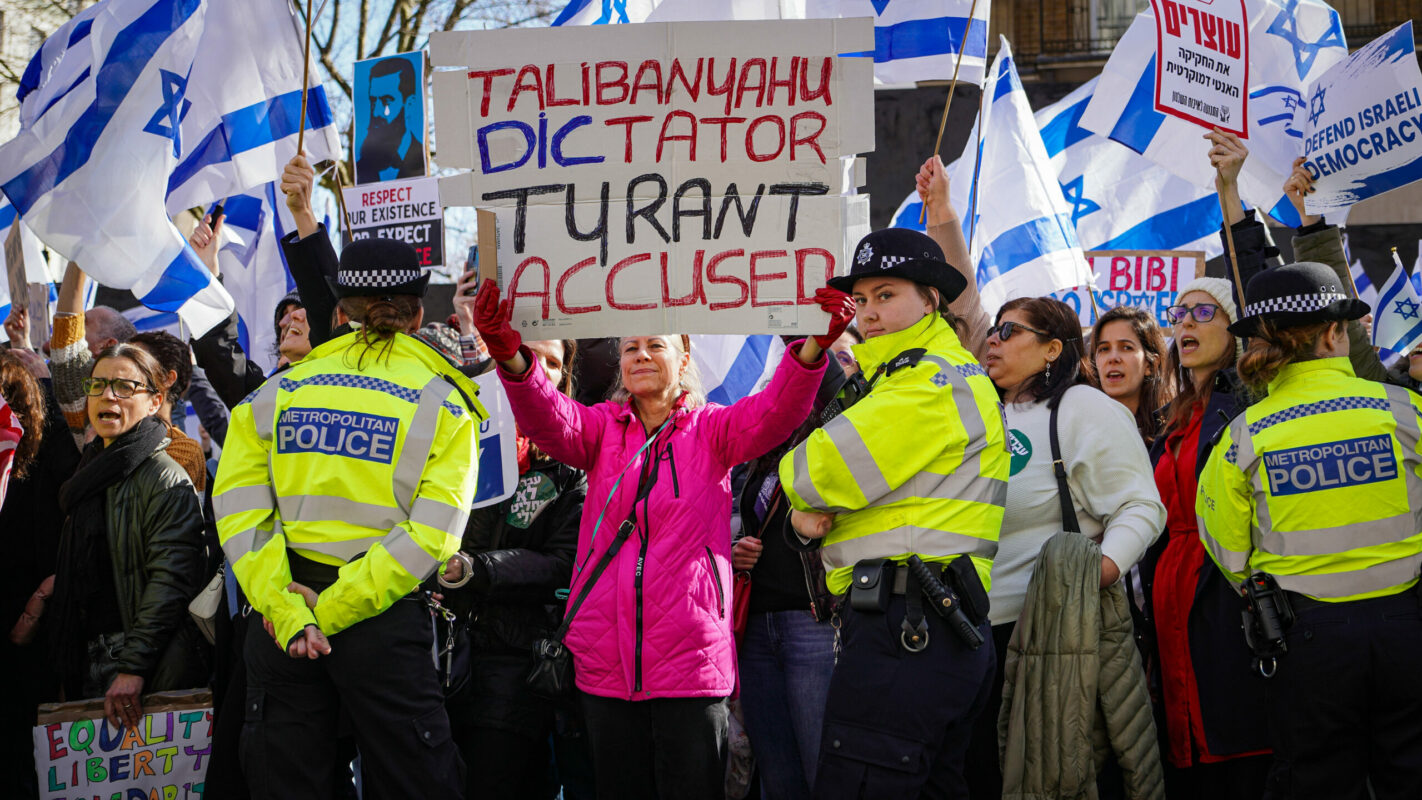Israeli lawmakers on Monday approved part of a proposed judicial overhaul that would limit the Supreme Court’s power to check government action, a key priority of Prime Minister Benjamin Netanyahu’s far-right government.
The vote took place as protests raged outside the Israeli Knesset and across the country. Polling has shown that a majority of Israelis oppose the sweeping overhaul, which has sparked mass outrage across Israel in recent months.
The bill approved Monday would prevent the Supreme Court from blocking government actions that the body deems “unreasonable.”
The Wall Street Journal reported that “Netanyahu’s entire coalition of 64 lawmakers voted in favor of the legislation, after efforts to reach a compromise collapsed.”
“The opposition lawmakers in the 120-seat parliament, known as the Knesset, walked out of the room,” the Journal added.
According to Haaretz, the corruption watchdog Movement for Government Quality “appealed to the Supreme Court against the law to abolish the reasonableness standard shortly after it was approved in the Knesset on its third reading.”
The group said the newly passed measure is “illegal as it significantly alters the nature of governance in the country and undermines the separation of powers,” Haaretz reported. “The movement also added that serious flaws in the legislative process were found, including the lack of involvement of Knesset members in the legislation and the absence of adequate and comprehensive factual and legal foundation.”
Earlier:
Protesters chained themselves to fences and blocked the entrance to the Knesset on Monday as Israeli lawmakers prepared to vote on legislation that would overhaul the nation’s judiciary, limiting the power of the Supreme Court to strike down laws—a move seen as a power grab by far-right forces led by Prime Minister Benjamin Netanyahu.
The push for the bill has been the catalyst for months of intense protests across Israel, with demonstrators taking to the streets by the hundreds of thousands, workers walking off the job, and businesses shutting their doors to express outrage over what opponents of the overhaul have described as a “judicial coup.”
A vote on a section of the legislation is expected Monday as prominent figures, including Israeli President Isaac Herzog, continued to call for a compromise measure that Netanyahu’s Likud party has thus far rejected.
“This is a national emergency,” Herzog said Monday. “It’s time for responsibility.”
Histadrut, Israel’s largest labor federation, has indicated that it will call a nationwide strike if the proposal isn’t weakened—though leaders of the protests against the judicial overhaul have said they’ll accept nothing less than a complete halt to the legislation. A general strike led by Histadrut in March grounded much of the country to a halt.
